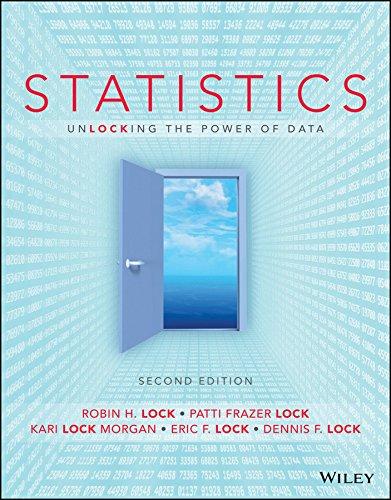Social Jetlag Social jetlag refers to the difference between circadian and social clocks, and is measured as
Question:
Social Jetlag Social jetlag refers to the difference between circadian and social clocks, and is measured as the difference in sleep and wake times between work days and free days. For example, if you sleep between $11 \mathrm{pm}$ and 7 am on weekdays but from $2 \mathrm{am}$ to $10 \mathrm{am}$ on weekends, then your social jetlag is three hours, or equivalent to flying from the West Coast of the US to the East every Friday and back every Sunday. Numerous studies have shown that social jetlag is detrimental to health. One recent study measured the self-reported social jetlag of 145 healthy participants, and found that increased social jetlag was associated with a higher BMI (body mass index), higher cortisol (stress hormone) levels, higher scores on a depression scale, fewer hours of sleep during the week, less physical activity, and a higher resting heart rate.
(a) Indicate whether social jetlag has a positive or negative correlation with each variable listed: BMI, cortisol level, depression score, weekday hours of sleep, physical activity, heart rate.
(b) Can we conclude that social jetlag causes the adverse effects described in the study?
Step by Step Answer:

Statistics, Enhanced Unlocking The Power Of Data
ISBN: 9781119308843
2nd Edition
Authors: Robin H Lock, Patti Frazer Lock, Kari Lock Morgan, Eric F Lock, Dennis F Lock





